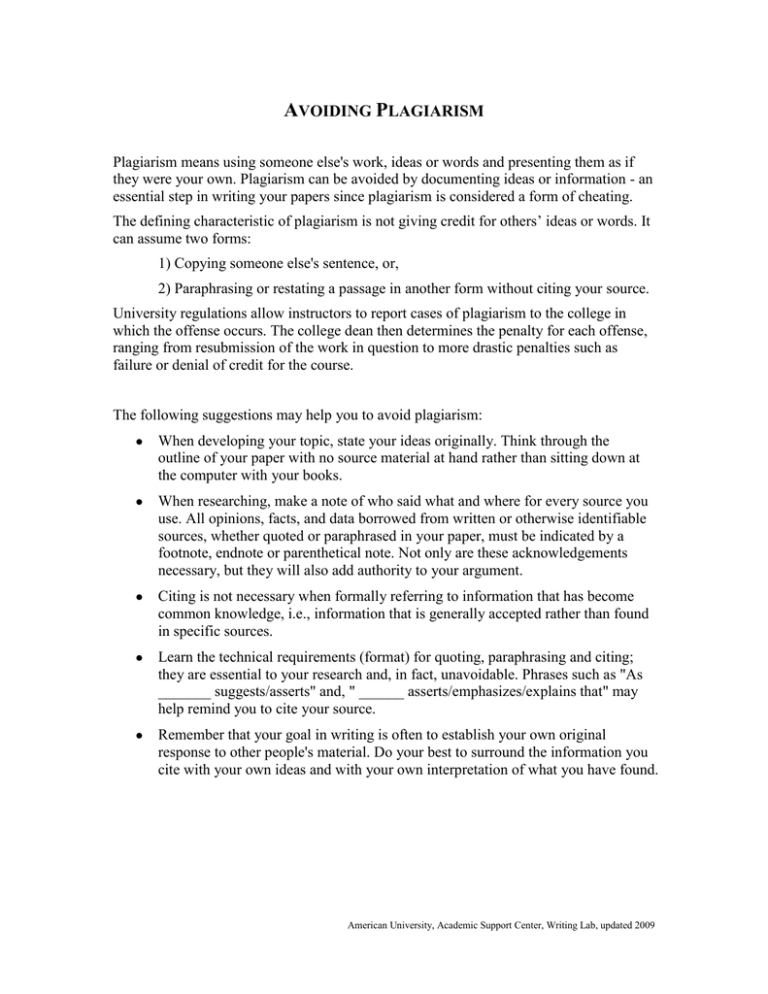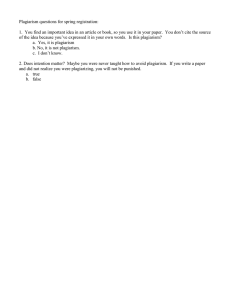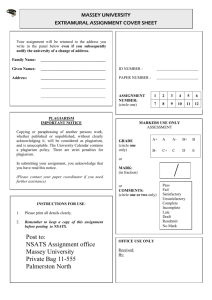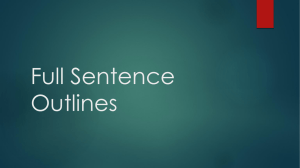A P VOIDING
advertisement

AVOIDING PLAGIARISM Plagiarism means using someone else's work, ideas or words and presenting them as if they were your own. Plagiarism can be avoided by documenting ideas or information - an essential step in writing your papers since plagiarism is considered a form of cheating. The defining characteristic of plagiarism is not giving credit for others’ ideas or words. It can assume two forms: 1) Copying someone else's sentence, or, 2) Paraphrasing or restating a passage in another form without citing your source. University regulations allow instructors to report cases of plagiarism to the college in which the offense occurs. The college dean then determines the penalty for each offense, ranging from resubmission of the work in question to more drastic penalties such as failure or denial of credit for the course. The following suggestions may help you to avoid plagiarism: When developing your topic, state your ideas originally. Think through the outline of your paper with no source material at hand rather than sitting down at the computer with your books. When researching, make a note of who said what and where for every source you use. All opinions, facts, and data borrowed from written or otherwise identifiable sources, whether quoted or paraphrased in your paper, must be indicated by a footnote, endnote or parenthetical note. Not only are these acknowledgements necessary, but they will also add authority to your argument. Citing is not necessary when formally referring to information that has become common knowledge, i.e., information that is generally accepted rather than found in specific sources. Learn the technical requirements (format) for quoting, paraphrasing and citing; they are essential to your research and, in fact, unavoidable. Phrases such as "As _______ suggests/asserts" and, " ______ asserts/emphasizes/explains that" may help remind you to cite your source. Remember that your goal in writing is often to establish your own original response to other people's material. Do your best to surround the information you cite with your own ideas and with your own interpretation of what you have found. American University, Academic Support Center, Writing Lab, updated 2009




